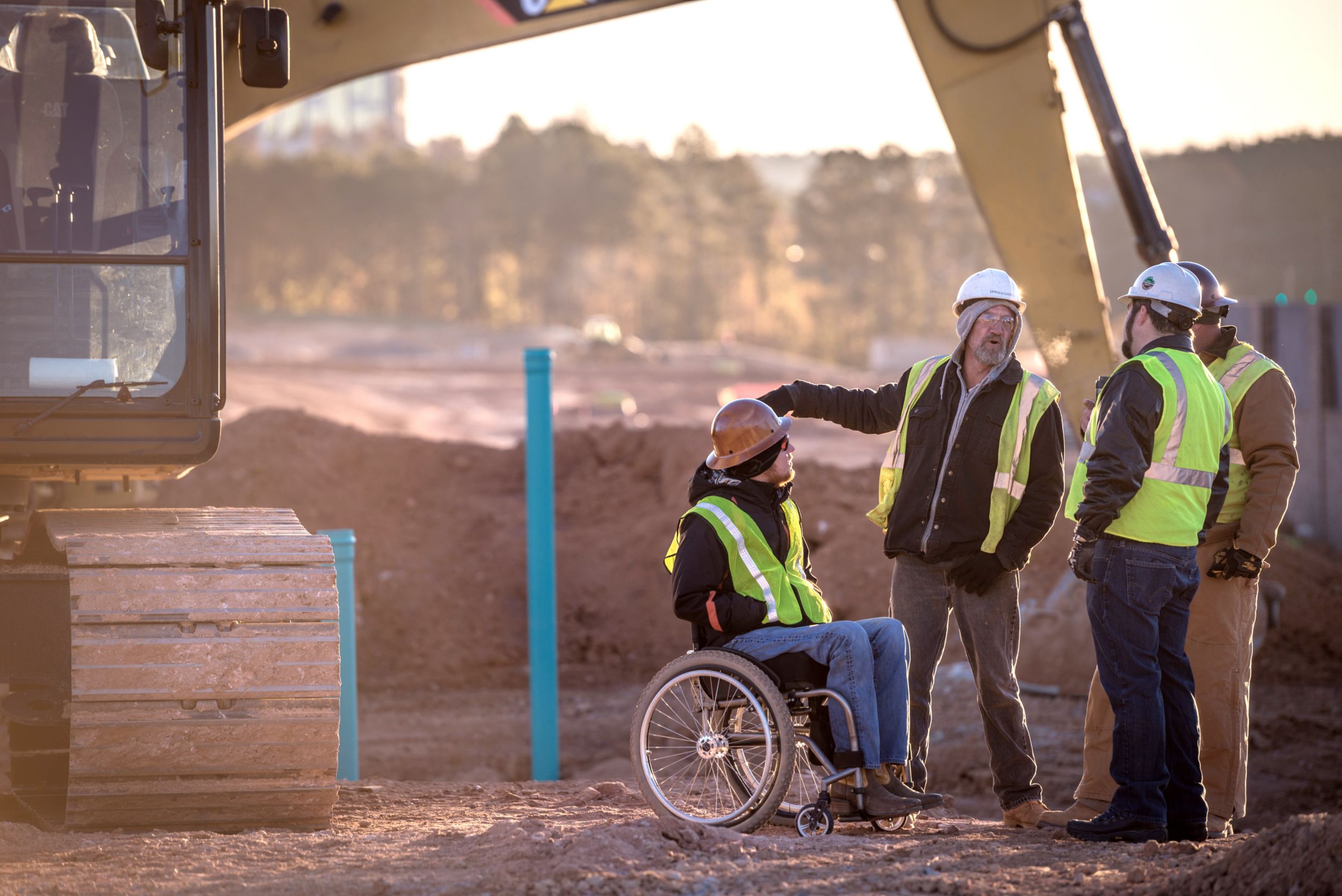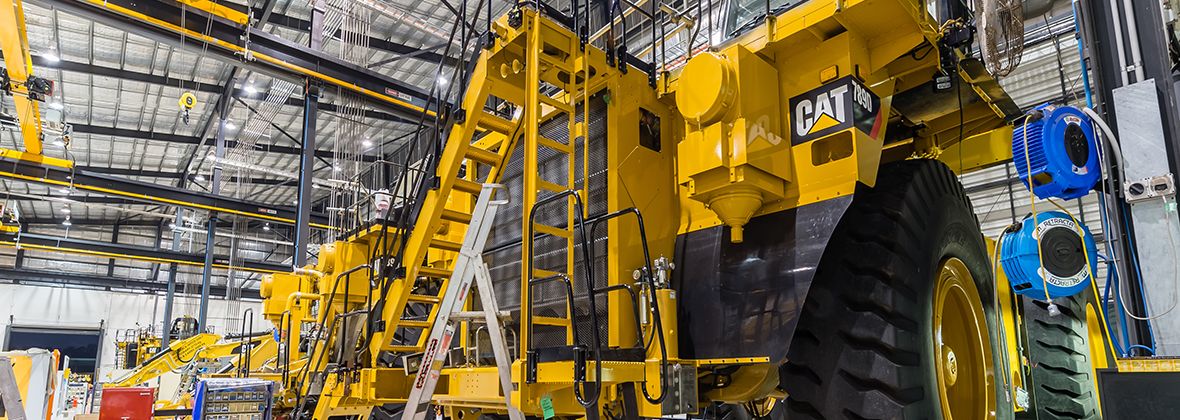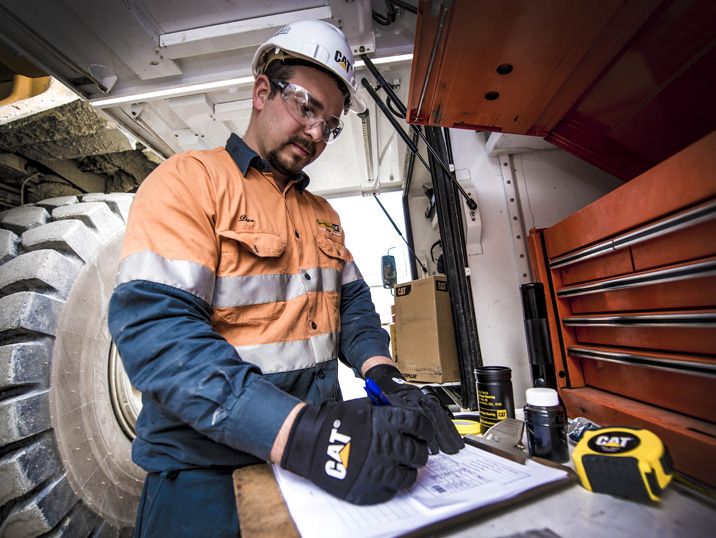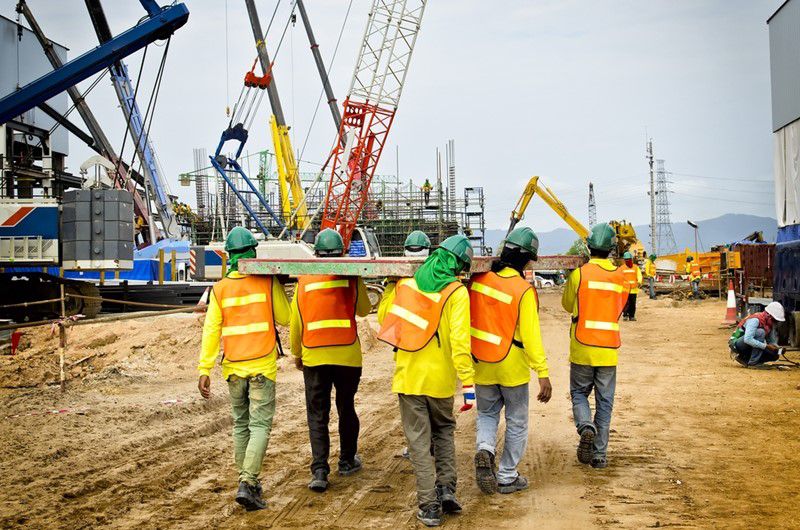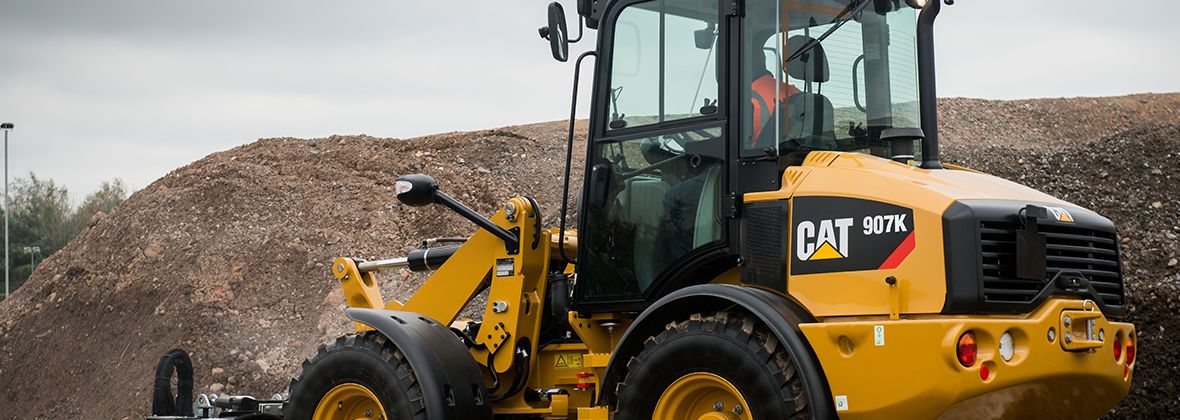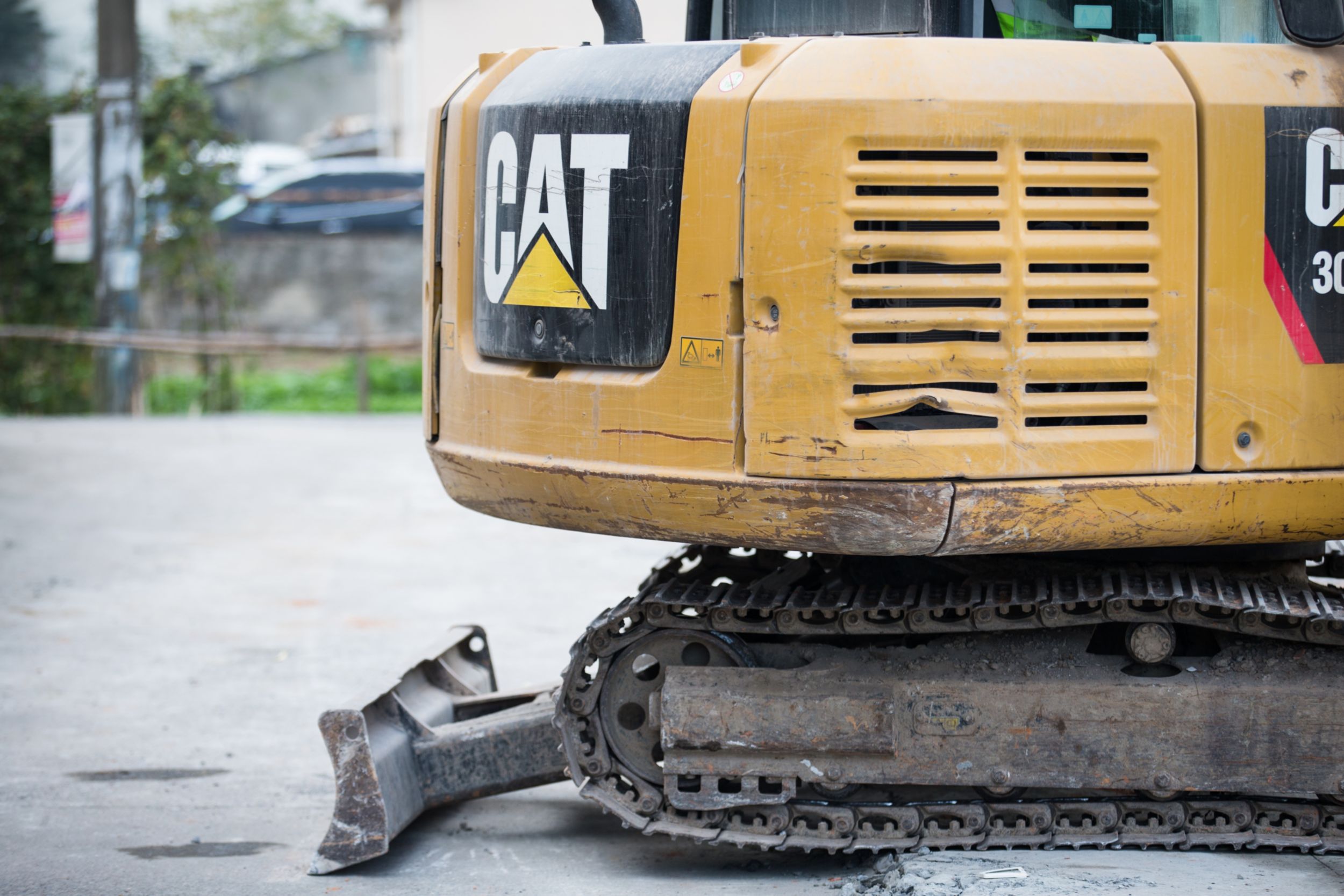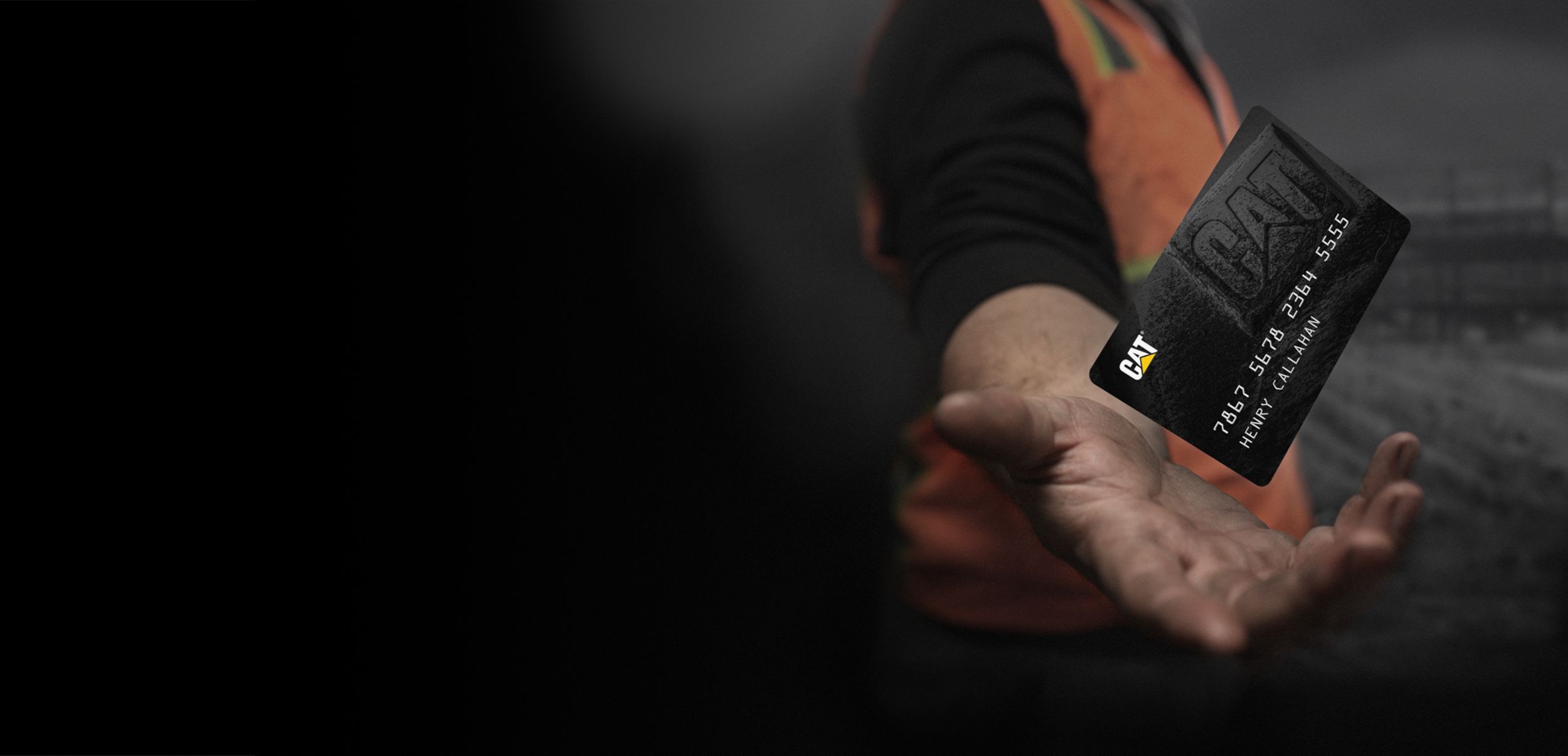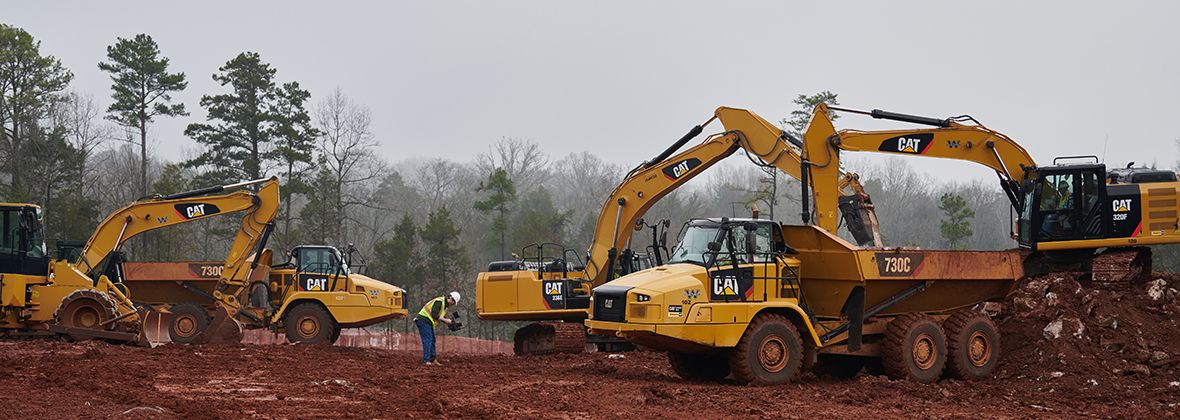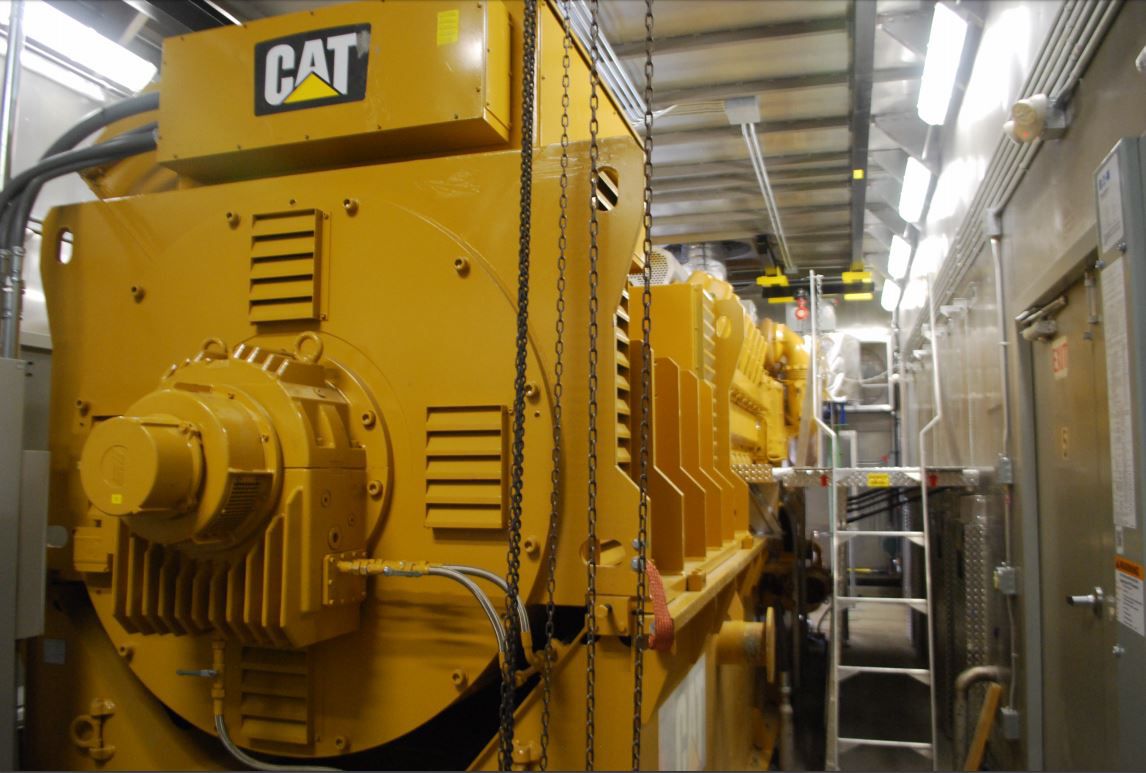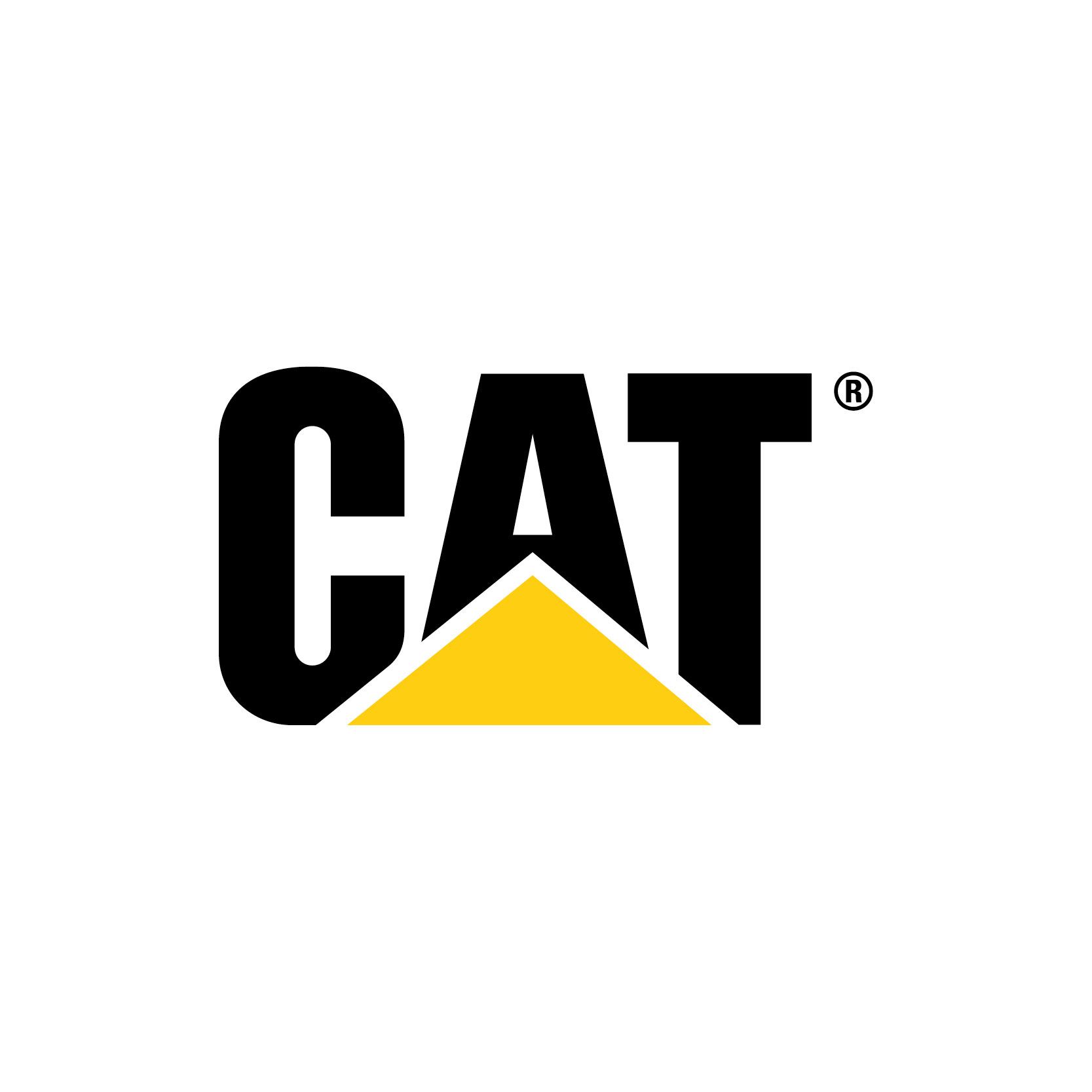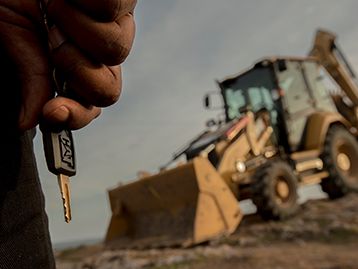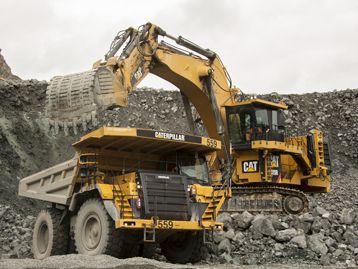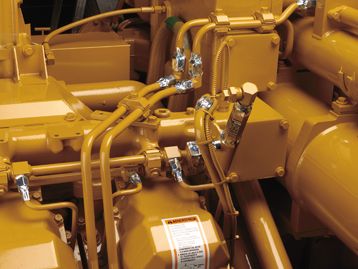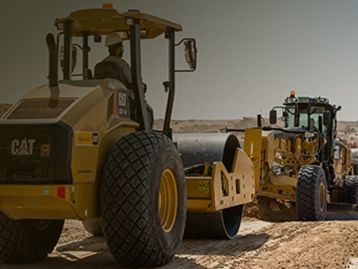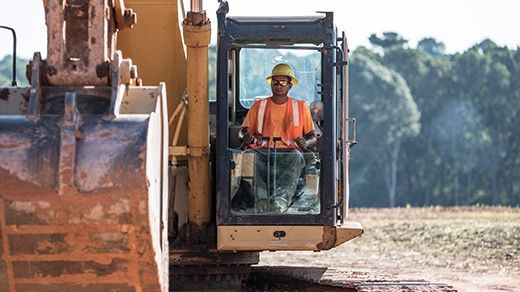If you already have an existing account with another Cat App, you can use the same account to sign in here.
One Account. All of Cat.
Your Caterpillar account is the single account you use to log in to select services and applications we offer. Shop for parts and machines online, manage your fleet, go mobile, and more.
Account Information
Site Settings
Security
A solid, dependable, and responsible crew is vital in construction. The mix of complex projects, tight deadlines, need for precision and constant use of powerful, expensive heavy machinery - not to mention long hours, taxing manual labor and exposure to the elements - mean a consistent, trustworthy employee is invaluable.
As you build your business, you'll need to find staff that can fill critical roles on the job site and help you move your business forward. While you need to anticipate some level of attrition, the right approach to hiring, developing, advancing and retaining workers can go a long way toward creating a stable, appreciative employee base that displays the positive attributes necessary for long-term success.
How to build a solid work crew
Hiring
Finding employees is the first step to building a dependable crew that you can count on. The nature of construction means there's a large pool of qualified workers out there, especially for jobs that don't require many specific skills or past experiences. However, you also need to consider recent industry trends that show a tight labor market. To find the employees that provide the best fit with your business needs during a time when workers are in demand, consider a targeted approach to recruitment.
Instead of posting general-interest job ads in your local newspaper or online, turn to job boards that focus on the construction industry when you're targeting workers with specific skills. Even if they may potentially have to relocate - and request you provide some financial assistance to that end - identifying and recruiting a veteran operator of the heavy machinery your company uses on a daily basis can definitely pay off. If you can target someone who is also familiar with the projects you most frequently bid for and take on, you'll have an especially valuable member of the team on board.
You may want to take a two-tiered approach to recruiting. Use localized job postings to find employees who need fewer qualifications and can more quickly move from prospect to new hire. Supplement these additions with more targeted, specialized postings on industry-specific job boards. You should also strongly consider drawing on the professional networks of your employees for potential new hires when the time comes. If you trust them, it can be a good supplemental source of new workers.
Make sure your job postings call attention to the specific attributes you want your employees to demonstrate, regardless of specific skill levels. An early emphasis on consistent attendance, ability to work well with others and a respect for safe jobsite practices helps you attract the type of employee you want on your team.
Onboarding and developing your team
Once you make first contact with potential recruits and deem them a good fit for your organization, you'll want to provide relevant and necessary technical training alongside a cultural development process. In terms of emphasizing business culture, you don't need to sit all new recruits down in one large gathering and lead a formal presentation if you don't want to - or don't think it will be effective. Instead, you can have more casual conversations and use other gatherings as a chance to introduce, address and emphasize key attitudes and priorities you expect to see among your staff.
Once employees are fully up to speed and you know you want to keep them with your business for the long haul, giving them opportunities for professional development is key. That can be as simple as training them on how to use the Cat equipment your business works with or giving them their first taste of managerial duties. You'll eventually reach a point where your staff have risen to the most senior position possible, which is where salary negotiations and the opportunity to play key roles in any business expansion can help keep them working for you.
Retention strategies and finding the next great team member
Giving workers chances to develop professional skills alongside competitive wages and opportunities for growth can help keep them from finding another employer. However, despite all of these strategies, some of your best employees will eventually leave for reasons that you simply can't address. You should never completely leave hiring efforts by the wayside. Identifying skilled workers in your local area makes it easier to extend offers and formulate transition plans following a valued current employee giving his or her notice. Keep job descriptions on hand for quick posting, no matter which avenues you decide to use, and ask your employees to tap into their networks, too.
A great crew is vital for a safe work environment and positive results. To get the equipment your staff needs to do the best job possible, talk to Cat Financial.
Additional Articles
Find in-depth articles to answer your questions about construction equipment financing, and expert tips to help you navigate today's economy as a successful business.
-
2020-08-01 A Guide to Equipment Financing
August 01, 2020
Learn More -
2020-03-01 Extend the Life of Your Equipment with a Rebuild
March 01, 2020
Learn More -
2020-03-01 What will the World Look Like After the Belt and Road Initiative is Complete?
March 01, 2020
Learn More -
2020-01-15 What Does a Lender Look For?
January 15, 2020
Learn more -
2019-10-01 6 Helpful Tips When Applying for Commercial Financing
October 01, 2019
Learn More -
2019-10-31 Protect Your Livelihood by Protecting Your Equipment
October 31, 2019
Learn More -
2019-10-15 Legacy Planning: Your Business After You
October 15, 2019
Learn More -
2019-10-10 The Immediate and Long-Term Value of Captive Finance Companies
October 10, 2019
Learn More -
2019-10-05 4 Easy Steps to Break Down Financial Barriers
October 05, 2019
Learn More -
Protecting Your Small Business: 3 Reasons to Make Sure You're Covered
Learn More -
2020-01-01 Business Health: The Basics of a Profitability Review
January 01, 2020
Learn More -
2020-02-05 Discover the Benefits of Donating Heavy Equipment
February 05, 2020
Learn More -
2019-09-30 How Does Small Business Equipment Financing Work? | Cat | Caterpillar
September 30, 2019
Learn More -
2019-12-31 The Tax Benefits to Buying Used Equipment | Cat | Caterpillar
December 31, 2019
Learn More -
2021-12-01 Benefits of a Cat® Card with Cat Financial | Cat | Caterpillar
December 01, 2021
Learn More -
2019-11-01 Benefits of Equipment Leasing | Cat | Caterpillar
November 01, 2019
Learn More -
2019-12-20 Comparing Equipment Lease Vs. Loan
December 20, 2019
Learn More -
2019-11-01 Four Easy Steps to Protect Your Cat® Engine or Generator Set
November 01, 2019
Learn More -
2021-12-01 The Benefits of Cat Power Finance
December 01, 2021
Learn More -
test
Learn More -
2020-11-01 Prepare Your Business for a Natural Disaster
November 01, 2020
Learn More -
2021-02-01 Flexible Financing
February 01, 2021
Learn More -
2020-02-01 Tips for Improving Cash Flow and Working Capital
February 01, 2020
Learn More -
2020-01-31 What the Belt and Road Initiative Means for the Modern Economy
January 31, 2020
Learn More -
2020-01-20 Understanding the Importance of the Belt and Road Initiative
January 20, 2020
Learn More -
2019-12-15 Building and Maintaining a Good Crew
December 15, 2019
Learn More -
test-quiz
Learn More -
2021-09-01 How to make the most out of equipment financing
September 01, 2021
Learn More -
2020-02-01 Business Health: Managing Risk to Make Effective Investments
February 01, 2020
Learn More -
2020-02-10 Budgeting 101: How to Create a Budget for Your Business
February 10, 2020
Learn More -
2020-02-15 Understanding Your Options for Lease Modification
February 15, 2020
Learn More -
2020-02-20 What Is Direct Pay?
February 20, 2020
Learn More -
2020-02-29 Tools for Success: Building a Strong Bidding Template
February 29, 2020
Learn More -
2020-03-10 Business Health: Identifying Priorities that Contribute to Growth
March 10, 2020
Learn More -
2020-03-15 The Importance of Having an Effective Construction Safety Culture
March 15, 2020
Learn More -
2020-03-20 Reduce Workplace Accidents with Effective Safety Strategies
March 20, 2020
Learn More -
2020-03-31 Effective Use of Cash Vs. Credit for Equipment Purchasing
March 31, 2020
Learn More -
2020-04-01 Understanding Federal and State Grants for Business
April 01, 2020
Learn More -
2020-04-05 5 Tips for Analyzing a Balance Sheet
April 05, 2020
Learn More -
2020-04-10 Grow Your Business with These 4 Tips
April 10, 2020
Learn More -
2020-04-15 Is Your Business Protected for the Future?
April 15, 2020
Learn More -
2020-04-20 The Ultimate Guide to Leasing Products
April 20, 2020
Learn More -
2020-04-30 The Equipment Financing Questions You Need to Ask at Your Next Trade Show
April 30, 2020
Learn More -
2020-05-01 6 Things You Should Know Before Contacting Equipment Leasing Companies
May 01, 2020
Learn More -
2020-05-05 The Benefits of Buying or Leasing Used Equipment
May 05, 2020
Learn More -
2020-05-10 How to Avoid Extra Costs at the End of Your Lease
May 10, 2020
Learn More -
2020-05-20 4 Benefits of an Effective Business Plan
May 20, 2020
Learn More -
2020-05-15 Acquiring a Construction Backhoe Loader
May 15, 2020
Learn More -
2020-05-31 Maintenance Tips to Winterize Your Heavy Equipment
May 31, 2020
Learn More -
2020-05-31 Managing Cash Flow When the Market Takes a Downturn
May 31, 2020
Learn More -
2020-06-08 Tips for Scheduling Equipment Maintenance
June 08, 2020
Learn More -
2020-06-15 An In-Depth Guide to Mining Equipment and Technology
June 15, 2020
Learn More -
2020-06-30 Maintenance Tips: Protecting Your Equipment from Normal Wear and Tear
June 30, 2020
Learn More -
2020-07-01 How to Get Financing for an Engine Overhaul
July 01, 2020
Learn More -
2020-07-01 Bids that Beat the Competition
July 01, 2020
Learn More -
2020-07-15 Tools for Success: How to develop a balanced scorecard for your company
July 15, 2020
Learn More -
2020-07-31 Tools for Success: Grow Your Business with an Effective Cash Flow Template
July 31, 2020
Learn More -
2020-08-10 Telematics Part 1: What Is Telematics and Why Is It Important for Construction Businesses
August 10, 2020
Learn More -
2020-08-15 Telematics Part 2: How Equipment Technology Helps Construction Businesses
August 15, 2020
Learn More -
2020-08-31 What Is Caterpillar Pay For Use™ And How Does It Help Your Business?
August 31, 2020
Learn More -
2020-09-01 I Have the Money to Pay for Equipment in Cash. Why Should I Finance Equipment Instead?
September 01, 2020
Learn More -
2020-09-15 What Construction Jobs Aren't Worth Taking?
September 15, 2020
Learn More -
2020-09-30 How Bonus Depreciation Can Help Your Business
September 30, 2020
Learn More -
2020-10-01 When Should You Consider Expanding Your Business?
October 01, 2020
Learn More -
2020-10-01 Equipment Financing Requirements: Four Key Factors
October 01, 2020
Take a Look -
2020-10-06 How Contractors Can Weather an Economic Downturn
October 06, 2020
Learn More -
2020-10-10 Tips for Improving Your Credit Score
October 10, 2020
Learn More -
2020-10-20 Equipment Financing: Answering Questions and Debunking Myths
October 20, 2020
Learn More -
2020-10-27 The Truth About Renting | Part 1
October 27, 2020
Learn More -
2020-11-30 5 Steps to Stop Equipment Theft
November 30, 2020
Learn More -
2020-10-31 The Truth About Renting | Part 2
October 31, 2020
Learn More -
2020-11-01 How Technology Can Help You Operate Your Business
November 01, 2020
Learn More -
2020-11-10 How to Deal with Financial Hardship in the Construction Industry
November 10, 2020
Learn More -
2020-11-20 Do I Need Commercial General Liability Insurance?
November 20, 2020
Learn More -
2021-01-01 Equipment Financing Trends for 2021
January 01, 2021
Learn More -
2021-07-15 Find Out How Skip Payments Can Help You Manage Your Business Better
July 15, 2021
Learn More -
2021-07-29 Payment and Affordability Calculator
July 29, 2021
Learn More -
2021-08-05 Fraud Prevention Checklist
August 05, 2021
Learn More -
2020-08-05 4 Tips to Generate Cash Flow as a Mining Company
August 05, 2020
Learn More -
Benefits of a Cat® Card with Cat Financial | Cat | Caterpillar
Learn More -
2020-08-10 Telematics Part 1: What Is Telematics and Why Is It Important for Construction Businesses
August 10, 2020
Learn More -
2021-08-12 How to Save Time on Your Next Heavy Equipment Purchase
August 12, 2021
Learn More -
2021-08-26 3 Helpful Online Financing Tools For Business Owners
August 26, 2021
Learn More -
5 Tips for Analyzing a Balance Sheet
Learn More -
How to make the most out of equipment financing
Learn More -
Cat® Power Finance
Learn More -
2021-08-19 9 Benefits of Equipment Financing
August 19, 2021
Learn More -
2021-07-22 Equipment Financing Trends for 2021
July 22, 2021
Learn More -
Quick Start Guide to Managing Your Account Online
Learn More -
Quick Start Guide to Managing Your Account Online
Learn More -
2020-07-20 Skid Steer Loader: The Jack of all Trades
July 20, 2020
Learn More -
2020-12-01 Cat Financial Can Do More Than Help You Get Equipment
December 01, 2020
Learn More -
DO NOT PUBLISH | ESC Content
Learn More


